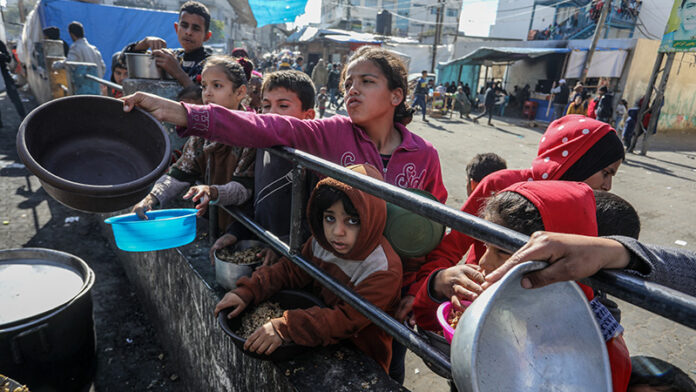The humanitarian crisis in Gaza has reached a critical point, with children increasingly at risk of starvation due to shortages of fortified milk and specialized therapeutic foods, aid agencies and the United Nations warn.
A recent interim statement from the Integrated Food Security Phase Classification (IPC), the main global hunger monitor, described famine as “playing out” in Gaza. While Israel has allowed more aid into the enclave since late July, volumes remain insufficient, and distribution is chaotic, leaving vulnerable populations without life-saving nutrition.
Gaza’s Health Ministry, verified by the World Health Organization (WHO), reports alarming rises in deaths from malnutrition and starvation. In the 22 months following the October 7, 2023 Hamas attacks, 89 fatalities, mostly children under 18, were attributed to hunger. In just the first 20 days of August, 133 deaths occurred, including 25 children.
At hospitals like Rantisi in Gaza City, doctors face critical shortages of therapeutic milk, while families struggle to feed infants. Mothers, themselves malnourished, are often unable to breastfeed, forcing caregivers to rely on scarce or improvised alternatives. UNICEF reports its stocks of specialized pastes are nearly depleted, covering only a fraction of children in need.
“Without consistent entry and distribution of fortified foods and supplementary items, this preventable crisis risks escalating into a widespread nutrition emergency,” said Antoine Renard, World Food Programme’s Palestine country director. The WHO notes that malnourished children face weakened immunity, making them highly susceptible to infections.
Traditional food sources such as agriculture and fishing have been decimated by war. Gaza’s population of over two million relies almost entirely on imports, but reports show that 90% of food delivered through aid checkpoints is lost to looting or conflict before reaching the most vulnerable.
Israel disputes the scale of malnutrition, attributing deaths to other medical conditions and criticizing the UN for distribution failures, while Hamas asserts the famine is worse than reported and urges increased aid access.
Despite recent aid and commercial imports, the overall supply of nutritious food remains insufficient to prevent further deterioration.
Aid agencies stress that sustained, large-scale deliveries of fortified foods, therapeutic milk, and dietary diversity are urgently needed to avert a mounting child mortality crisis.
Written By Rodney Mbua



















